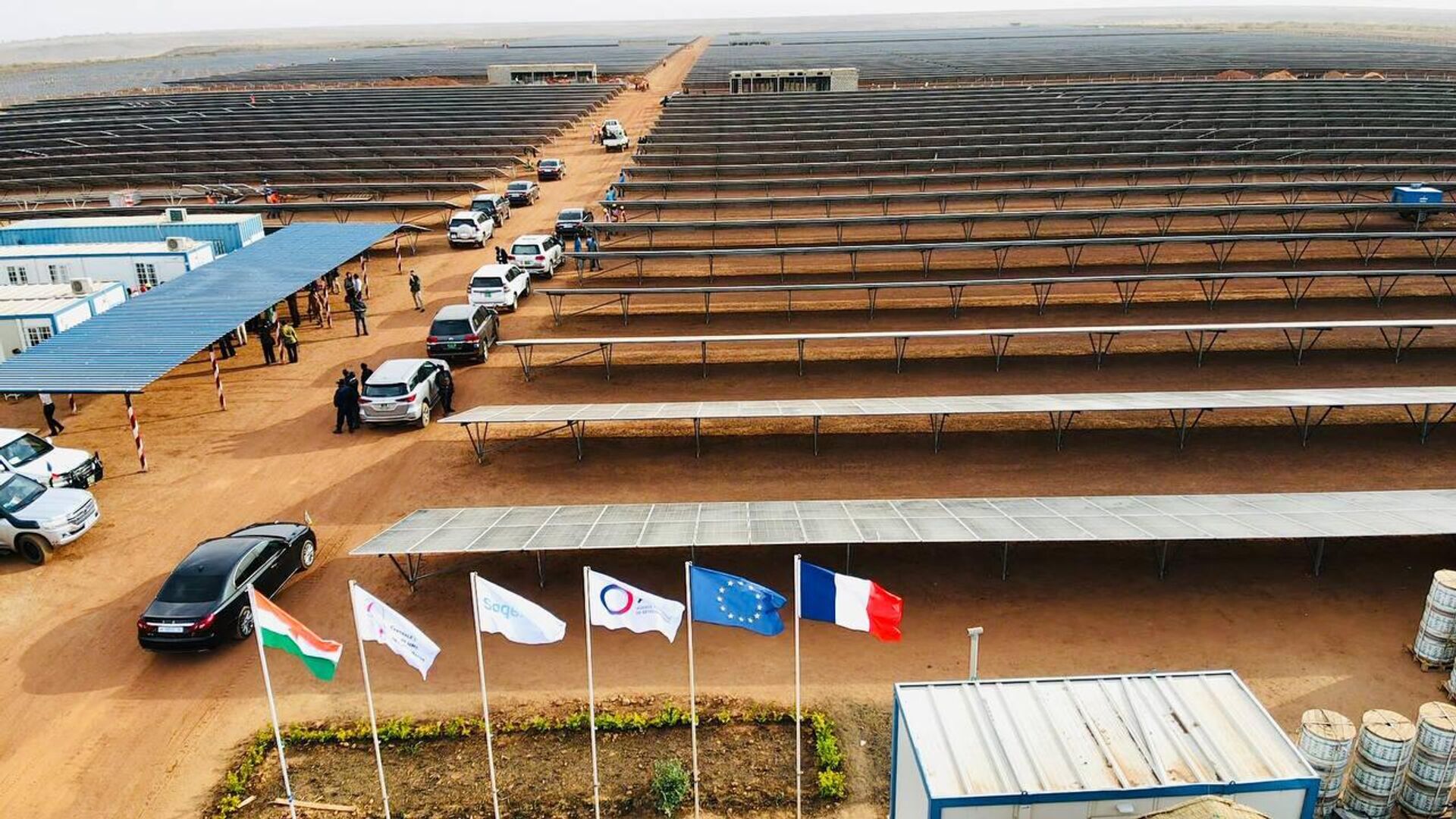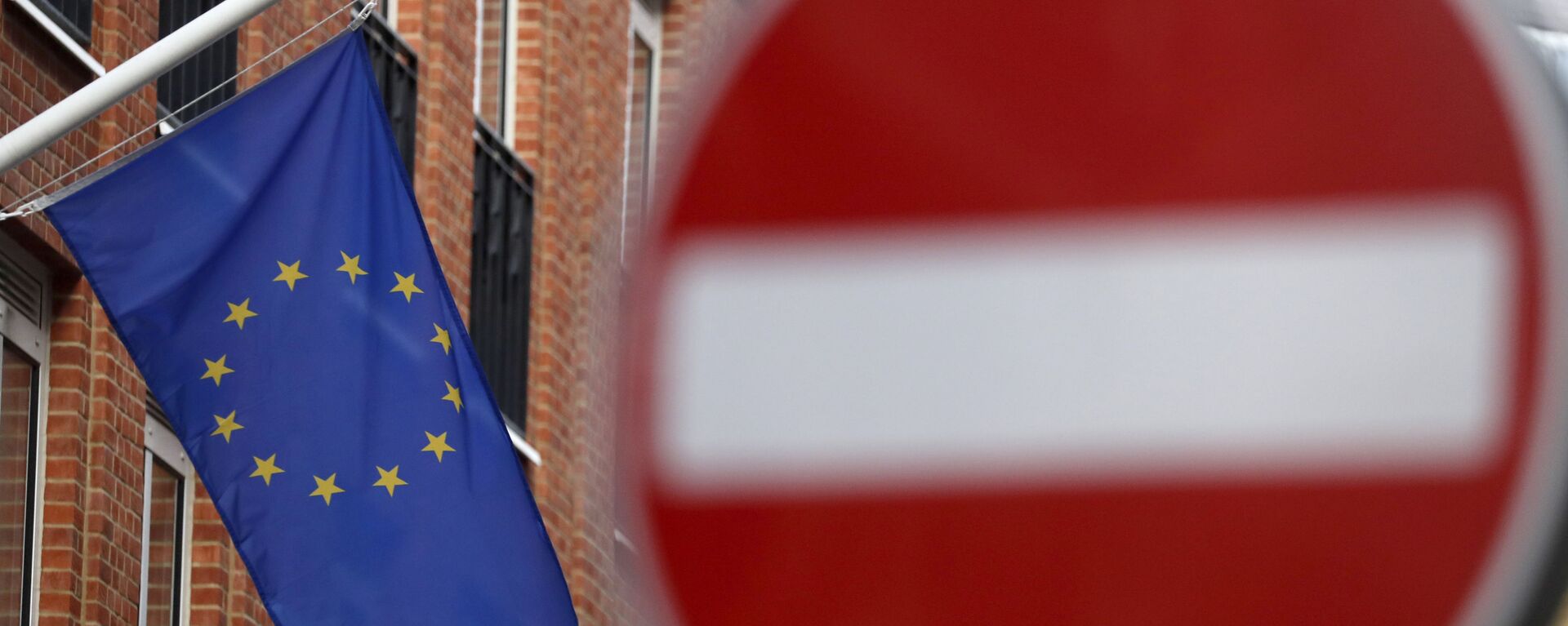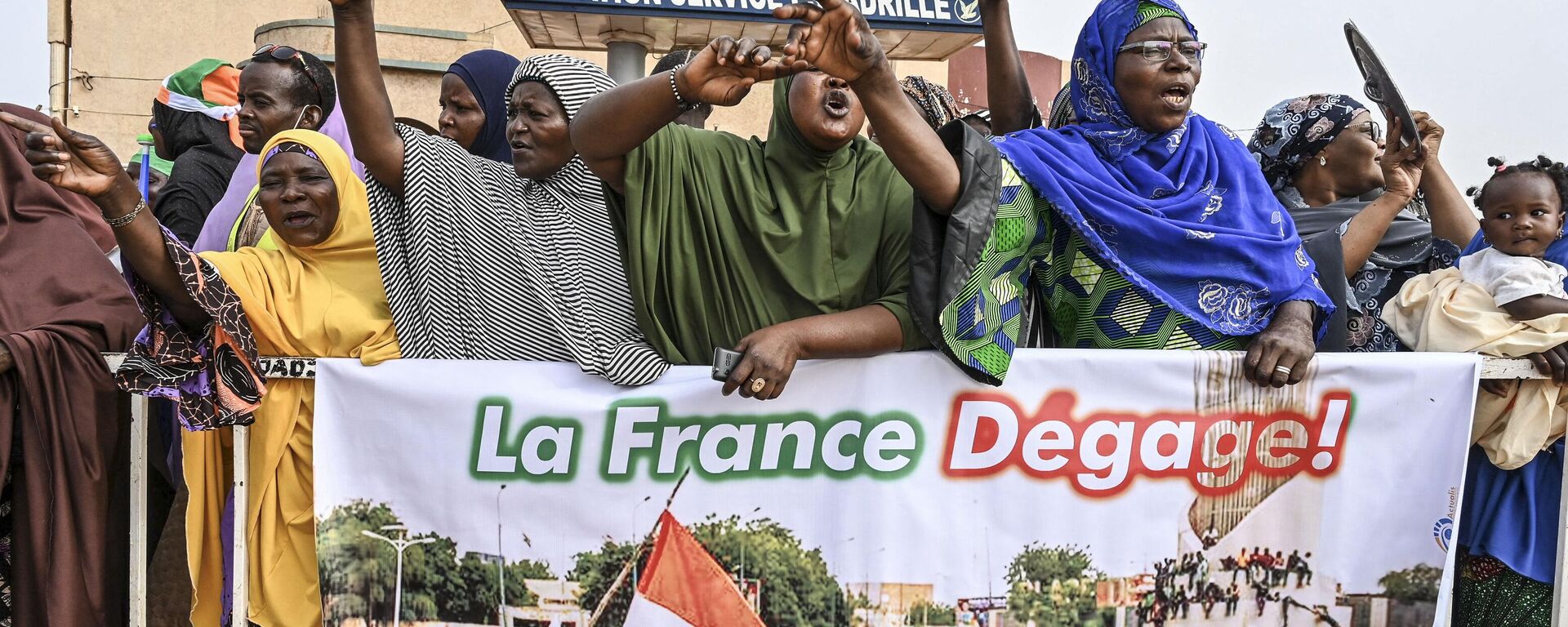https://en.sputniknews.africa/20231023/sanctions-against-niger-will-have-negative-impact-on-west-africa-ghanaian-official-1063030068.html
Sanctions Against Niger Will Have Negative Impact on West Africa: Ghanaian Official
Sanctions Against Niger Will Have Negative Impact on West Africa: Ghanaian Official
Sputnik Africa
On Monday, the Council of the European Union said it had adopted a framework to sanction individuals and entities in Niger behind the military takeover in... 23.10.2023, Sputnik Africa
2023-10-23T18:33+0200
2023-10-23T18:33+0200
2023-10-23T18:38+0200
opinion
africa in details
west africa
ghana
niger
sanctions
russia
military coup
https://cdn1.img.sputniknews.africa/img/07e7/08/1c/1061680987_0:0:1280:720_1920x0_80_0_0_73ecf1ce4b2bd644e1e72f9d3e2efba0.jpg
The sanctions imposed on post-coup Niger will inevitably have negative consequences for other countries in the region, resulting in socio-economic disruptions and thus exacerbating existing vulnerabilities, Dr. Lawrence Awuku-Boateng, President of the Ghana-Russia Business Development Council, said in an interview with Sputnik Africa on the sidelines of the Yalta International Forum 2023 in Moscow.Commenting on the EU's announcement of a new sanctions' mechanism against Niger, Awuku-Boateng emphasized that such measures have a disproportionately negative impact on developing countries. He noted that these nations still need international support to achieve their goals for economic development and advancement, while sanctions can halt their progress.Awuku-Boateng went on to say that developing countries are already facing growing challenges in various sectors, such as healthcare and the provision of basic services to impoverished populations. Against this backdrop, the imposition of sanctions will only worsen the situation. This may happen in Niger, and then spread to neighboring nations, as they all share the same sub-region and to some extent interconnected.Therefore, he stressed that most countries in the region do not want to maintain "this kind of insecurity" created by sanctions, as it threatens overall development and stability. He further explained that they want these sanctions "lifted and minimized" to promote Africa's prosperity.Speaking about the sanctions imposed on Moscow following the onset of the special military operation in Ukraine, Awuku-Boateng said there are other alternative routes and ways to maintain and even expand trade with Russia. He noted that countries such as China, South Africa and Turkey have not been affected by the sanctions, thus providing an opportunity to bypass European nations and establish new reliable trade routes.On Monday, the Council of the European Union adopted a framework for sanctions against the coup leaders in Niger to support the efforts of the Economic Community of West African States (ECOWAS) "for a swift return to constitutional order in Niger." The West African nation experienced a coup in late July, when the military seized power and ousted President Mohamed Bazoum. Following the takeover, ECOWAS imposed sanctions and suspended all cooperation with Niger, threatening military intervention if the coup leaders did not reinstate Bazoum. In particular, ECOWAS suspended all financial aid to Niger, froze rebels' assets and imposed a ban on commercial flights to and from the country, as well as closed all borders. The EU followed suit, suspending development and security cooperation with Niger.
https://en.sputniknews.africa/20231023/council-of-eu-adopts-framework-for-sanctions-against-niger-coup-leaders-1063023971.html
https://en.sputniknews.africa/20231018/france-niger-trade-in-august-nosedives-to-lowest-level-since-2000-1062888346.html
west africa
ghana
niger
russia
Sputnik Africa
feedback@sputniknews.com
+74956456601
MIA „Rossiya Segodnya“
2023
News
en_EN
Sputnik Africa
feedback@sputniknews.com
+74956456601
MIA „Rossiya Segodnya“
Sputnik Africa
feedback@sputniknews.com
+74956456601
MIA „Rossiya Segodnya“
africa in details, west africa, ghana, niger, sanctions, russia, military coup
africa in details, west africa, ghana, niger, sanctions, russia, military coup
Sanctions Against Niger Will Have Negative Impact on West Africa: Ghanaian Official
18:33 23.10.2023 (Updated: 18:38 23.10.2023) On Monday, the Council of the European Union said it had adopted a framework to sanction individuals and entities in Niger behind the military takeover in July. The restrictive measures include an asset freeze, a prohibition on making funds available for individuals and entities, as well as a travel ban.
The sanctions imposed on post-coup Niger will inevitably have negative consequences for other countries in the region, resulting in socio-economic disruptions and thus exacerbating existing vulnerabilities, Dr. Lawrence Awuku-Boateng, President of the Ghana-Russia Business Development Council, said in an interview with Sputnik Africa on the sidelines of the Yalta International Forum 2023 in Moscow.
Commenting on the EU's
announcement of a new sanctions' mechanism against Niger, Awuku-Boateng emphasized that such measures have a disproportionately negative impact on developing countries. He noted that these nations still need international support to achieve their goals for economic development and advancement, while sanctions can halt their progress.
"We are still developing countries, and we always want a shoulder to lean our heads on. And whenever these sanctions and others come to us, we feel the heat, and it becomes very, very unbearable. Already we are swimming in poverty and now you are adding more sanctions. What do you want us to do?" he said.
Awuku-Boateng went on to say that developing countries are already facing growing challenges in various sectors, such as healthcare and the provision of basic services to impoverished populations. Against this backdrop, the imposition of sanctions will only worsen the situation. This may happen in Niger, and then spread to neighboring nations, as they all share the same sub-region and to some extent interconnected.
"So it doesn't help us at all because if it [sanctions] affects Niger, it affects Burkina. If it affects Burkina, it’s affecting Nigeria. If it affects Nigeria, it affects Ghana because we are in the same sub-region," the official explained.
Therefore, he stressed that most countries in the region do not want to maintain "this kind of insecurity" created by sanctions, as it threatens overall development and stability. He further explained that they want these sanctions "lifted and minimized" to promote Africa's prosperity.
Speaking about the sanctions imposed on Moscow following the onset of the special military operation in Ukraine, Awuku-Boateng said there are other alternative routes and ways to maintain and even
expand trade with Russia. He noted that countries such as China, South Africa and Turkey have not been affected by the sanctions, thus providing an opportunity to bypass European nations and establish new reliable trade routes.
"We have done some feasibility study about how to trade with Russia. And the best thing that we have developed is, you know, China is not affected by these sanctions. South Africa is not affected. So you can always route your things. Not through other European countries, but through China, Turkey, Dubai or South Africa, [they are] free," Awuku-Boateng pointed out.
On Monday, the Council of the European Union adopted a framework for sanctions against the coup leaders in Niger to support the efforts of the Economic Community of West African States (ECOWAS) "for a swift return to constitutional order in Niger." The West African nation experienced a coup in late July, when the military seized power and
ousted President Mohamed Bazoum.
Following the takeover, ECOWAS
imposed sanctions and suspended all cooperation with Niger, threatening military intervention if the coup leaders did not reinstate Bazoum. In particular, ECOWAS suspended all financial aid to Niger, froze rebels' assets and imposed a ban on commercial flights to and from the country, as well as closed all borders. The EU followed suit, suspending development and security cooperation with Niger.



